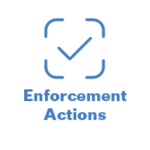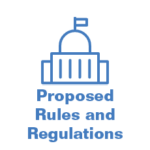- Home
- Public
- Resources
- Advanced Search
- Advisory Boards
- Careers
- District Offices
- e-Payment
- Enforcement Actions
- Meet the Director
- Mission Statement and Values
- Nondiscrimination Policy
- Outreach and Public Information
- Public Comments Online Portal
- Public Notices
- Records Requests
- Spill and Complaints
- State of the Environment
- Topics
- Divisions
- News
- Calendar
PFAS in Drinking Water Monitoring Assistance Program
- Home
- Water Quality
- Emerging Contaminants
- PFAS in Drinking Water Monitoring Assistance Program

The DEQ undertakes enforcement actions to preserve safe environmental conditions throughout Wyoming.
This page contains information on the enforcement actions that the Water Quality Division may undertake, as well as a record of enforcement actions that have been undertaken by WQD.
If the download box is not working below, please click here.
Electronic document submittal is available for WQD permit applications, reports, and other communications.
Visit: WDEQ Water Quality Division Downloads
You do NOT need to follow up the electronic submission with a hard copy submission unless you are specifically contacted by a WQD staff person with a request to do so.
Need to report a spill or complaint? Please visit https://deqspills.wyo.gov/home
Submitting a public comment? WQD is unable to accept public notice comments through this system. Refer to the public notice document for instructions on how to submit comments or visit https://wq.wyomingdeq.commentinput.com/comment/search.
NOTICE: All applications for water distribution systems and/or sewage collection systems that are within the Cheyenne Board of Public Utilities (BOPU) district shall be submitted to the BOPU for approval. Contact Frank Strong or Bryce Dorr at (307) 637-6460, ENGreview@cheyennebopu.org, or http://cheyennebopu.org for additional information.
The DEQ Water Quality Division accepts comments on all permits authorized under a general permit for a period of 30 days, as provided for in W.S. 35-11-801(d).
Interested persons may mail or fax comments to the main Cheyenne office. The ‘Date’ column in the table below indicates the date the authorization was posted to the website. Comments must be received before 5:00 pm on the 30th day after the authorization was posted to the website. For example, comments for an authorization posted on 10/1/18 must be received by 5:00 p.m. on 10/31/18. DEQ does not accept emailed comments.
You may sort the table by posting date or search for the type of general permit, the county where the permit was issued, the permit number, or the name of the person or company to whom the permit was issued.
If you wish to review the general permit documents, please go to the web page for each permitting program:
- Storm Water Construction, Mineral Mining, and Industrial General Permits.
- Underground Injection Control (UIC) General Permits
- Water and Wastewater Construction General Permits.
- WYPDES General Permits
If the download box is not working below, please click here.
All official Wyoming State Rules and Regulations are kept at the Wyoming Secretary of State’s Office. Click here to view all current Rules and Regulations.
PFAS in Drinking Water Monitoring Assistance Program
The PFAS in Drinking Water Monitoring Assistance Program provides cost-free support to public water systems and private well owners interested in testing drinking water for per- and polyfluoroalkyl substances (PFAS) and other emerging contaminants of interest. Funding for the program is provided by Wyoming’s Emerging Contaminant in Drinking Water Grant, which can provide support if PFAS or other emerging contaminants are detected.
The program can assist:
- Community water systems and non-transient non-community water systems meet initial monitoring requirements under the PFAS National Primary Drinking Water Regulation (PFAS NPDWR)
- Transient, non-community public water systems that are not subject to the PFAS National Primary Drinking Water Regulation
- Private well owners in proximity to known or suspected sources of PFAS
Lindsay Patterson
Emerging Contaminants Coordinator
307-777-7158
Lindsay.Patterson@wyo.gov
Sign Up
Sign up for the PFAS in Drinking Water Monitoring Assistance Program by completing the access agreement form. Public water systems should sign up by December 5, 2025. There is currently no deadline for private well owners to sign up.
The access agreement form can be completed:
- Online at: https://forms.microsoft.com/g/vJNpTp5TMC
- By downloading the form from the “Program Resources” tab on this webpage or requesting a copy from HydroGeoLogic, Inc. (HGL) at WDEQPFAS@hgl.com or (703) 326-7823.
- Return completed forms by email to WDEQPFAS@hgl.com or by mail to HydroGeoLogic, Inc., c/o Cheryl Delk, 200 Union Blvd, Suite 300, Lakewood, CO 80228.
Program Details
Additional details regarding the PFAS in Drinking Water Monitoring Assistance Program are available:
- By clicking on the drop-down menu below; and
- In the fact sheets available under the “Program Resources” tab on this webpage.
WDEQ’s contractor, HGL, can perform the following activities for public water systems required to comply with the PFAS National Primary Drinking Water Regulation.
- Visit each entry point to the distribution system two to four times to collect samples consistent with initial monitoring requirements of the PFAS National Primary Drinking Water Regulation. Sampling for other emerging contaminants such as 1,4-dioxane, perchlorate, aluminum, lithium, manganese, molybdenum, strontium, and vanadium can also be conducted.
- Inspect each entry point to the distribution system to identify PFAS-containing materials such as tapes, gaskets, seals, and coatings and provide recommendations on PFAS-free alternatives.
- Send PFAS (and potentially other emerging contaminant samples) to an approved laboratory for analysis.
- Conduct quality review of the data and resample, if necessary.
- Provide results to the public water system and WDEQ.
- Submit results to the U.S. Environmental Protection Agency by April 26, 2027, as required by the PFAS National Primary Drinking Water Regulation.
- Provide recommended next steps should PFAS or other emerging contaminants be detected, including information on financial assistance programs such as Wyoming’s Emerging Contaminants in Drinking Water Grant and Wyoming’s State Revolving Loan Fund.
- Provide hands-on and online training to operators on how to conduct PFAS sampling.
- Assist with public notifications, if requested.
WDEQ’s contractor, HGL, can perform the following activities for transient non-community public water systems not subject to the PFAS National Primary Drinking Water Regulation.
- Visit the transient non-community water system to conduct sampling for PFAS. Sampling for other emerging contaminants such as 1,4-dioxane, perchlorate, aluminum, lithium, manganese, molybdenum, strontium, and vanadium can also be conducted.
- Inspect each system to identify PFAS-containing materials such as tapes, gaskets, seals, and coatings and provide recommendations on PFAS-free alternatives.
- Send PFAS (and potentially other emerging contaminant samples) to a certified laboratory for analysis.
- Conduct quality review of the data and resample, if necessary.
- Provide results to the public water system and WDEQ.
- Provide recommended next steps should PFAS or other emerging contaminants be detected, including information on financial assistance programs such as Wyoming’s Emerging Contaminants in Drinking Water Grant and Wyoming’s State Revolving Loan Fund.
- Provide hands-on and online training to operators on how to conduct PFAS sampling.
- Assist with public notifications, if requested.
WDEQ’s contractor, HGL, can perform the following activities for private well owners.
- Visit each private well to conduct PFAS sampling. Sampling for other emerging contaminants such as 1,4-dioxane, perchlorate, aluminum, lithium, manganese, molybdenum, strontium, and vanadium can also be conducted.
- Inspect each well to identify PFAS-containing materials such as tapes, gaskets, seals, and coatings and provide recommendations on PFAS-free alternatives.
- Send PFAS samples (and potentially other emerging contaminants) to a certified laboratory for analysis.
- Conduct quality review of the data and resample, if necessary.
- Provide sampling results to the private well owner and WDEQ.
- Provide recommended next steps should PFAS be detected, including information on financial assistance programs such as Wyoming’s Emerging Contaminants in Drinking Water Grant.









